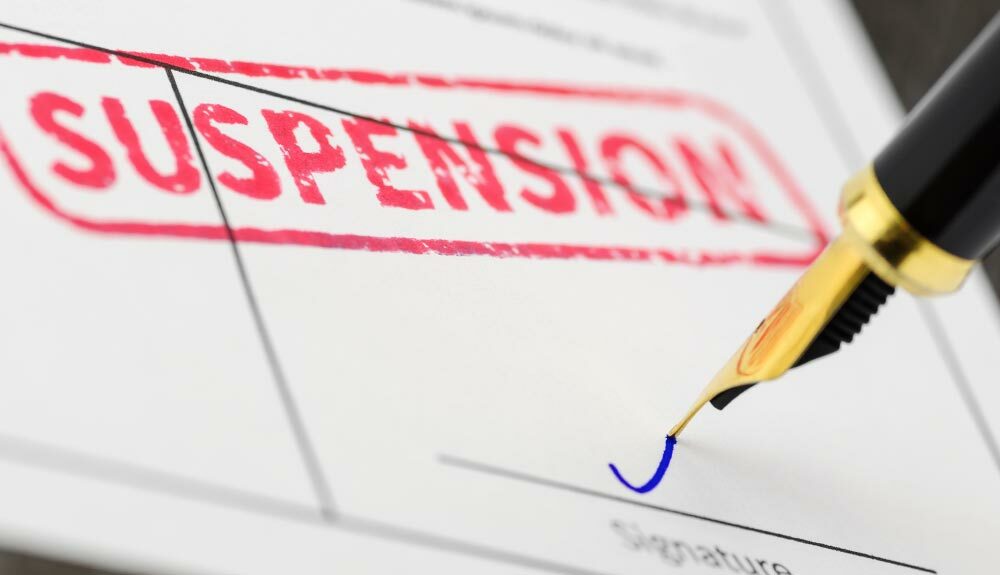“This is your Perry Mason moment.” The moment Alex Jones said those words, the courtroom knew the radio host’s performance in the Sandy Hook defamation case was a catastrophic misstep. Jones’ case turned on the stunning reality of his attorney accidentally sending discovery information, including all the defendant’s phone records, to a plaintiff’s legal team.
It later came to light that Norm Pattis, Jones’s lawyer, was at fault for the leak, which included court-ordered confidential discovery information of the plaintiffs. The circumstances did not bode well for Pattis in court. Many months later, Pattis has been suspended from practicing law in Connecticut for 6-months for releasing said documents as outlined in the recent memorandum.
A lawyer can be suspended for a range of reasons, from situations like Pattis’s to administrative suspensions. Regardless of the circumstances, there are a few important rules suspended lawyers must abide by, and things to know about the backlash a suspension can have on the lawyer and the law firms with whom they are associated.
Due diligence: According the American Bar Association’s Model Rules for Lawyer Disciplinary Enforcement Rule 27, lawyers have obligations when they are suspended. According to the ABA’s rules, if a lawyer is suspended for more than six months, they may be required to notify constituents including clients and opposing counsel, provide clients with necessary records to secure new counsel, return client property, refund fees and/or officially withdrawal. A disciplined lawyer will receive a lawyer suspension order that outlines who they must notify, how long they have been suspended and other pertinent information.
Depending on the severity of the suspension, lawyers may be listed on the U.S Department of Justice’s List of Currently Disciplined Practitioners. Each state will have different specifications and laws around suspension, but generally a suspended lawyer cannot be in court, give clients advice or counsel or handle funds. It is important that lawyers and law firms understand their state specific suspension requirements as well as those issued in the lawyer suspension order to ensure they are prepared to comply. Failing to do so can make an already pressing matter worse.
Client impact: An attorney’s suspension can impact their ability, and their firm’s ability, to retain and attract clients. After a client is notified of an attorney’s suspension, they can choose to secure a new attorney outside of the firm. Additionally, prospective clients might opt for a different representation after learning about a lawyer’s prior suspension. Some damage control can be done, but the implication of a suspension and the risk it presents may irrevocably damage important business relationships.
Financial implications: Suspended lawyers might be rehired by their firms to take an administrative role either during or after their suspension. However, if a lawyer is reinstated and rehired to practice law, the law firm could see an increase in premiums on their malpractice insurance as the lawyer presents an additional risk to the firm. In some cases, a law firm could be refused coverage for maintaining employment of the suspended lawyer. An insurance professional who specializes in insurance for lawyers can assist in understanding the firm’s best course of action under these circumstances.
Lawyer suspension, whether a circumstance like Pattis’s that attracts national media attention or a clerical error, can pose a risk to the firms they represent and the lawyer’s careers. While no one plans to be suspended, law firms should take extra precautions to ensure their attorneys are practicing ethically and understand what is at stake should they face suspension.



